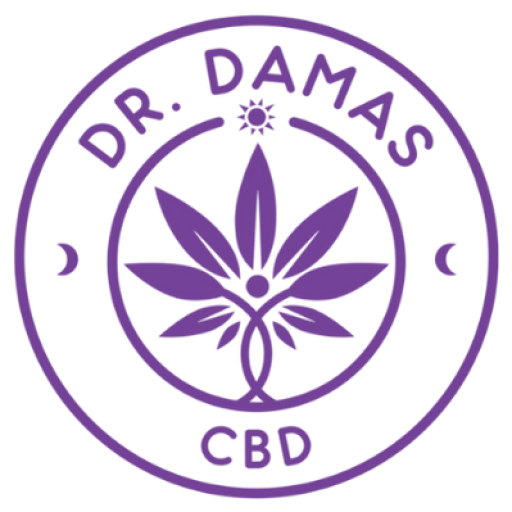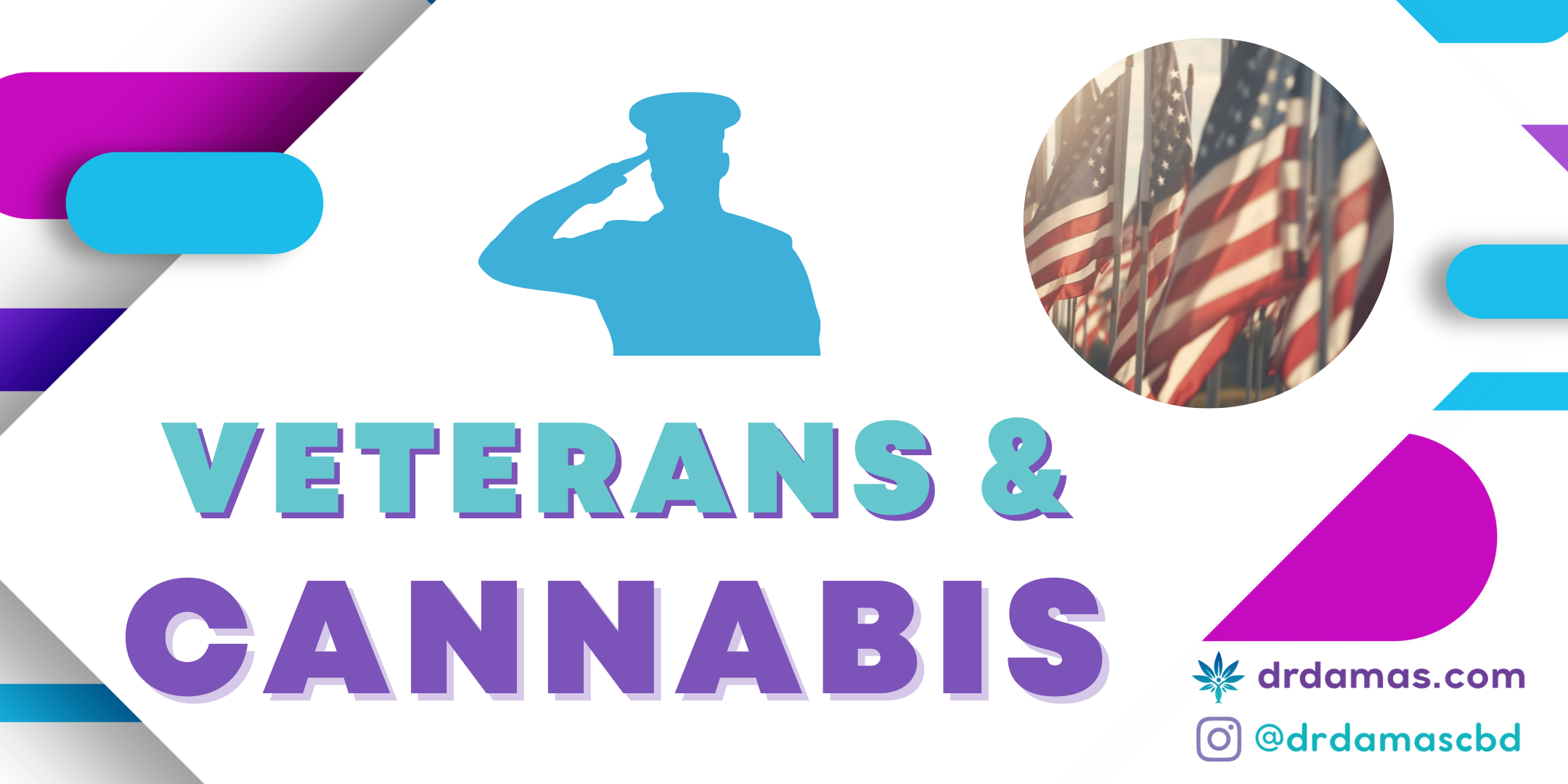Active Duty and Military Veterans: Medical Marijuana/Cannabis and CBD
With Veterans Day just around the corner, it’s a great time to discuss cannabis options as it pertains to our active duty and retired service members. At our office, we see many veterans suffering from various medical conditions. Oftentimes, they complain of unsatisfactory treatments that are either sub-optimal (i.e. ibuprofen for pain) or have made them feel worse (i.e. opioids, mood stabilizers). Many vets have inquired about and lamented the limited treatment options available while both on active duty and after separation from service. As such, many veterans have come to us seeking advice about treatment with cannabis.
The use of medical marijuana and CBD (cannabidiol) among active duty military personnel and veterans is a topic of growing interest and debate. With evolving policies and a greater understanding of the potential benefits and risks, it's important for us to have a good understanding of the current landscape and relevant policies in order to provide guidance for those navigating this complex issue. Recent policy changes, such as the rescheduling of marijuana, have significant implications for military and veteran communities.
Policies on Medical Marijuana & CBD for Active Duty Military
Federal Law and Military Regulations
Under federal law, marijuana remains classified as a Schedule I controlled substance, meaning it is considered to have a high potential for abuse and no accepted medical use. Consequently, its use is prohibited for active duty military personnel. The Department of Defense (DoD) maintains strict regulations against the use of marijuana and any products containing THC (tetrahydrocannabinol), the psychoactive component of cannabis.
Department of Veterans Affairs (VA) Policies
The VA follows federal guidelines and does not prescribe medical marijuana. However, veterans are not denied VA benefits due to marijuana use, and VA providers are encouraged to discuss marijuana use with their patients as part of a comprehensive care plan. Veterans are also allowed to participate in state medical marijuana programs.
Recent Policy Changes: Rescheduling of Marijuana
In recent years, there have been discussions about rescheduling marijuana to reflect its potential medical benefits. Rescheduling would potentially allow for more research and could impact military and VA policies. However, as of now, marijuana remains a Schedule I substance at the federal level.
Statistics and Research
According to a 2019 survey by the Iraq and Afghanistan Veterans of America (IAVA), 83% of veterans support the legalization of medical marijuana, and 90% support further research into its medical uses. Additionally, an article published by the VA and National Center for PTSD found that veterans have increased their use of cannabis to manage their conditions.
Pearls
Active duty military personnel are subject to federal law and DoD regulations, which prohibit the use of marijuana.
Veterans can discuss marijuana use with VA providers and participate in state medical marijuana programs without losing VA benefits.
The Use of CBD Among Military Personnel and Veterans
Understanding CBD
CBD is a non-psychoactive compound found in cannabis that has gained popularity for its potential therapeutic benefits, such as pain relief, anti-inflammatory properties, and anxiety reduction. Unlike THC, CBD does not produce a "high."
DoD Policy on CBD
The DoD has a zero-tolerance policy for marijuana, which extends to CBD products. Despite the legalization of hemp-derived CBD under the 2018 Farm Bill, the DoD prohibits the use of CBD products due to the potential for THC contamination and the lack of FDA regulation.
VA Policy on CBD
The VA does not prescribe CBD, but veterans can purchase and use CBD products legally available in the market. VA providers can discuss CBD use with veterans as part of their overall healthcare plan, similar to how they approach medical marijuana.
Statistics and Research
A 2020 survey by the American Legion found that 1 in 5 veterans use CBD to manage various health conditions, including chronic pain and anxiety. Another study indicated that 57% of veterans reported an improvement in their overall health after using CBD products.
Pearls
Despite federal legalization of hemp-derived CBD, the DoD prohibits its use due to potential THC contamination.
Veterans can legally use CBD products and discuss their use with VA providers.
Benefits of Medical Marijuana and CBD for Veterans
Pain Management
Chronic pain is a common issue among veterans. Medical marijuana and CBD have shown promise in managing pain, providing an alternative to opioids, which have a high potential for addiction and adverse effects. According to the National Institute on Drug Abuse, medical marijuana has been effective in reducing chronic pain in adults (IAVA).
Headaches
Some studies have shown that cannabinoids are effective in relieving symptoms. One such study conducted by the University of Colorado found that out of 121 patients, 103 reported a decrease in monthly migraine attacks. Check out the National Headache Foundation for more resources to help deal with your headaches.
Mental Health
Many veterans suffer from mental health conditions such as PTSD, anxiety, and depression. Some studies suggest that medical marijuana and CBD can help alleviate symptoms of these conditions, offering a potential adjunct or alternative to traditional treatments. A study published in the Journal of Affective Disorders found that cannabis use reduced PTSD symptoms by more than 50% in some users.
Sleep Disorders
Sleep disturbances are prevalent among veterans. Medical marijuana and CBD may improve sleep quality by reducing anxiety and pain, thereby promoting better overall health and well-being. Research published in Current Psychiatry Reports supports the use of cannabinoids for improving sleep disorders.
Sexual Dysfunction
This is a common condition amongst veterans- it affects both men and women. It can be caused or worsened by other conditions like pain and PTSD. One study found that cannabis helped people relax, heightened their sensitivity to touch, and increased intensity of feelings, thus enhancing their sexual experience.
Pearls
Medical marijuana and CBD offer potential alternatives to opioids for chronic pain management in veterans.
Both medical marijuana and CBD have shown potential in improving mental health and sleep disorders among veterans.
Military Contractors and Medical Marijuana/CBD
Role of Military Contractors
Military contractors play a critical role in supporting the operational capabilities of the armed forces, providing services that range from logistical support and equipment maintenance to intelligence and security operations. These private companies operate alongside military personnel, often in high-stress and hazardous environments.
Policies and Access
Like active duty military personnel, military contractors are subject to federal laws and DoD regulations regarding the use of marijuana and CBD. This means that contractors, despite facing similar stresses and health challenges as military personnel, are also prohibited from using these substances even if they are legally available in their home states or countries.
Health Implications
Military contractors, who often work in high-risk environments, might benefit from the therapeutic effects of medical marijuana and CBD for conditions such as chronic pain, PTSD, and anxiety. However, due to existing regulations, they must seek alternative treatments that are compliant with federal laws.
Pearls
Military contractors, similar to active duty personnel, are prohibited from using medical marijuana and CBD due to federal regulations.
The potential benefits of medical marijuana and CBD for contractors include managing chronic pain, PTSD, and anxiety, though they must find compliant alternatives.
Routes of Administration
Cannabis and CBD can be consumed in various forms. I always like to discuss the different ways you can use your plant medicine. There is no right way- each has its own advantages and disadvantages. Here’s a refresher:
Oils and tinctures: Placed under the tongue for absorption through the sublingual mucosa. Offer fast absorption but may have a strong taste.
Inhalation: This method offers the fastest onset of effects but may irritate the lungs and is not suitable for everyone, especially those with respiratory issues.
Oral consumption: Edibles and capsules offer a sustained release of cannabinoids but take longer to take effect (up to 2 hours) and can be unpredictable in terms of dosing.
Topicals: Creams and lotions can be applied directly to areas of pain or inflammation for localized relief but may not be effective for managing widespread symptoms.
Things to Remember:
Legality: Cannabis laws vary widely by state and country. It's crucial to consult with a healthcare professional knowledgeable about medical cannabis and the legalities in your area.
Drug Interactions: Cannabis can interact with some medications, so it's important to disclose all medications you are taking to your doctor before considering cannabis use.
Side Effects: While generally well-tolerated, cannabis can cause side effects like dry mouth, dizziness, and drowsiness.
Guidance for Moving Forward
Staying Informed
It's crucial for military personnel, veterans, and contractors to stay informed about the latest policies and research regarding medical marijuana and CBD. As laws and regulations evolve, staying updated can help ensure compliance and make informed decisions about their use.
Consulting Healthcare Providers
Veterans and contractors should openly discuss their interest in or use of medical marijuana and CBD with their healthcare providers. This can help integrate their use into a comprehensive care plan and monitor for any potential interactions or side effects.
Advocacy and Policy Change
Advocating for policy changes that support the medical use of marijuana and CBD can help address the needs of veterans and contractors. Organizations and individuals can work together to push for research, rescheduling, and changes in federal and military policies.
Some Resources:
Veterans Alliance for Holistic Alternatives (VAHA): Provides educational resources and support for veterans seeking to utilize medical cannabis for treatment. (https://www.vahahealth.com/)
Veterans Cannabis Coalition (VCC): Aims to end cannabis prohibition and promote research into the therapeutic potential of medical marijuana for veterans. (https://www.veteranscannacoalition.org/)
Iraq and Afghanistan Veterans of America (IAVA): Has called on Congress to ease restrictions on veterans' access to medical marijuana through the VA healthcare system. (https://www.marijuanamoment.net/category/newsletter/)
Pearls
Staying informed about policy changes and research is essential for compliance and making informed decisions about medical marijuana and CBD use.
Advocacy for policy changes can support the medical needs of veterans and military contractors and promote further research.
Wrapping It All Up!
It’s a pleasure and honor to be able to help our servicemembers find the answers and treatment they're looking for. The use of medical marijuana and CBD among active duty military personnel, veterans, and military contractors is a complex and evolving issue. We always try to ensure that we have the most current and accurate information.
Current policies restrict cannabis and CBD use for active duty personnel and contractors, while veterans have more flexibility within state programs. Understanding the potential benefits, staying informed about policy changes, and consulting healthcare providers are key steps for those considering medical marijuana and CBD. Continued advocacy and research are essential to support the health and well-being of military and veteran communities. Happy Memorial Day!















